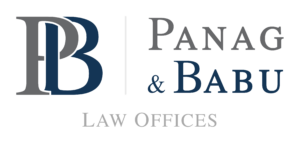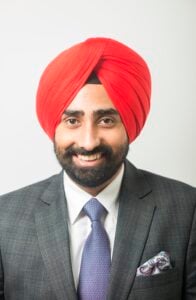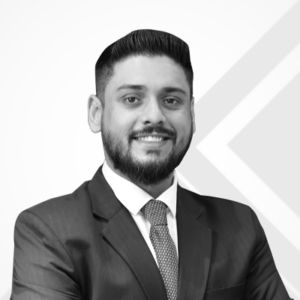Law Offices of Panag & Babu > New Delhi, India > Firm Profile
Law Offices of Panag & Babu Offices

NO. 82 ,1ST FLOOR, PHASE-III
OKHLA INDUSTRIAL ESTATE
NEW DELHI, 110020
110020
India
Law Offices of Panag & Babu > The Legal 500 Rankings
India > White-collar crime Tier 2
Specialist white-collar and investigations firm Law Offices of Panag & Babu represents a wide range of major corporate clients in regulatory investigations and criminal proceedings brought by domestic and international agencies, with notable experience of cross-border investigations relating to bribery, fraud, internal governance issues, and corporate policy violations, as well as litigation up to Supreme Court level. The team, led by veteran white-collar practitioner Sherbir Panag, also advises clients on internal policy and risk compliance, as well as crisis management, including dawn raid responses. Samudra Sarangi is also a notable name in the team, focusing on criminal litigation. The firm is based in New Delhi.Practice head(s):
Sherbir Panag
Other key lawyers:
Samudra Sarangi; Vidhi Khanijow; Tanya Ganguli
Law Offices of Panag & Babu > Firm Profile
Panag & Babu is a globally acclaimed, specialist law firm with three marquee practices – Business Crimes (Compliance, Investigations & White-Collar Crime Defense), Commercial Litigation & Dispute Resolution and Telecom, Media & Technology.
We have a pan India practice, serviced through our dual headquarters in New Delhi and Bengaluru.
Panag & Babu’s specialism across its practice areas is sector agnostic, with a distinguished service offering drawn from multi-disciplinary teams and India’s top legal talent. Our firm is ranked as one of the ‘Best Law Firms to Work’ at in India.
Main Contacts
| Department | Name | Telephone | |
|---|---|---|---|
| Managing Partner | Sherbir Panag | sherbir@pblawoffices.com | +91 98199 07099 |
| Litigation & Dispute Resolution | Samudra Sarangi | samudra@pblawoffices.com | +91 95354 77722 |
| Litigation & Dispute Resolution | Shodhan Babu | shodhan@pblawoffices.com | +91 82776 87476 |
| Litigation & Dispute Resolution | Shruti Raina | shruti.raina@pblawoffices.com | +91 90493 59869 |
| Telecom, Media & Technology | Akash Karmakar | akash@pblawoffices.com | +91 98700 05622 |
| Compliance, Investigations & White-Collar Crime Defense | Mansi Bidani | mansi.bidani@pblawoffices.com | +91 97692 18013 |
Lawyer Profiles
| Photo | Name | Position | Profile |
|---|---|---|---|

|
Mr Sherbir Panag | Managing Partner and Practice Chair | View Profile |

|
Mr Samudra Sarangi | Practice Chair and Partner | View Profile |
Interviews
Sherbir Panag, Chair – Compliance, Investigations and White Collar Crimes Defence Practice
Panag & Babu’s managing partner – Sherbir Panag talks about the firm’s cutting edge work, criminal prosecution trends in India and what he enjoys the most about practicing white collar crime law.
1) What makes Law Offices of Panag & Babu stand out from its competitors?
Panag & Babu is the largest multi-disciplinary white-collar crime practice in India. Barring the obvious advantage our size offers of being able to deploy more effectively across multiple mandates simultaneously, we also have the first mover advantage and experience of having acted on most of India’s prominent financial crimes cases.
Our core differentiator remains our deep understanding and specialism in criminal law and our ability to appreciate different enforcement yardsticks across jurisdictions that impact multinational companies. We bring an integrated world view, backed by the best talent in the market which is housed in the most prestigious stable.
To be honest, our track record does all the standing out for us. There is not a marquee global matter involving India that we are not engaged on, and our recent results range from pre-trial bails to acquittals, settlements with Indian securities regulators, to declinations from the U.S. government.
2) What have been key trends in white-collar crime enforcement in India over the past 12 months?
Consistent with an over decade-long trend, white-collar crime enforcement continues to increase and remains extremely aggressive. As enforcement is conducted by a plethora of enforcement bodies each with a different mandate, investigations are becoming more long drawn and complex, with a significant amount of inter-agency competition. The propensity of pre-trial arrests is at an all-time high, with judicial reluctance to grant bail in typical white-collar crime offences becoming a key bone of contention. There are critical constitutional challenges on the mandates and powers of certain law enforcement bodies that are pending before the courts, which hopefully will make headway over the next 12-18 months.
The aggressive investigations and adoption of pre-trial arrest, searches, and seizures notwithstanding – the number of cases making it to trial and past trial, remain disproportionate to the number of investigations initiated. This of course also impacts the setting of substantive precedent.
3) What is the greatest challenge posed by the interplay of multiple enforcement agencies in different jurisdictions during cross-border investigations?
At the heart of it, the key challenge remains marrying the standards and expectations not only of different enforcement agencies but also legal systems.
For one, Indian law does not allow for settlements or deferred prosecution agreements or non-prosecution agreements as is prevalent in Europe and the United States. Enforcement actions that are brought culminate in trial and therefore, managing the expectation of full cooperation in one jurisdiction that includes privilege waiver, versus balancing the impact that such disclosure may have in another jurisdiction by becoming prosecutable evidence is a daunting task and requires a far more global view than a mere national law view.
To add to the complexity, Indian enforcement actions itself are brought forth by multiple enforcement agencies largely looking at the same facts, but from the lens of different statutes and offences. Therefore, legal strategy is getting more stretched, nuanced and incapable of a one size fits all approach; especially in cross border cases.
4) Where are you seeing the most number of corporate prosecutions? Would it still be bribery of government officials?
I believe the prosecutions around bribery and anti-corruption laws remain steady, but the central focus currently would be of prosecuting corporate fraud and money laundering.
The Indian money laundering law, which follows the proceeds of crime and predicate offence model, has seen a widening of ambit which in turn has fuelled prosecution. Again, it would be imperative that I distinguish between investigations and prosecutions that have commenced (which is a high number) against trials concluded (which is a significantly lower number).
5) If you could implement one reform to the way business crimes defence is legislated in India, what would it be?
That’s a tall order but I would like to advocate for a centralised prosecution and investigation agency for financial crimes. Currently we have a multitude of investigating agencies, all with their own prosecutor cadre or special appointees – which has taken its toll on both the justice system (in terms of number of cases) and prejudice to the accused persons as well.
6) What is the impact AI has had on internal investigations?
For now, I will say there’s a lot of potential but a really long way to go. Predictive coding for document review is at a nascent stage and far from being able to stand on its legs without human review. I don’t see anything earth shattering at this juncture and would put a 2-3year timeline before we start seeing meaningful value.
7) What do you enjoy most about working on white-collar crime matters?
To me it’s the best of both worlds – the thrill and intellectual rigour of criminal law and the fast pace of commercial law. Leading a corporate crime practice, in my view is the best job in the world – where I get to do the right thing every day, by bringing facts to the forefront and ensuring companies find their moral compass. There’s never a dull day and that is part of the charm.
8) What do clients look for in an effective business crimes defence lawyer?
In my view, clients predominantly look for lawyers who are problem solvers (as opposed to those who describe problems) and effectively communicate with all relevant stakeholders from senior management to boards to regulators and junior employees.
A business crime incident is never a company’s proudest moment and typically comes with immense disruption. The disruption is not just limited to bad press or regulatory inquiries / actions, but all that it takes to mount a defence. Executives spend more and more time collecting documents and having meetings with legal counsel. At such moments, lawyers not only have to have their legal skills firing on all cylinders but also their project management and emotional skills to help their clients navigate a difficult situation.
Similarly, the same business crime issue may manifest several elements of law and have consequences outside just the criminal law such as employment actions, disputes with business partners – and once again the need of the hour becomes the ability to provide comprehensive legal solutions as opposed to fragmented ones.
9) How do you establish a detailed understanding of a client’s business to advise them effectively?
Nothing could be more central to conducting an effective internal investigation or mounting a strong defence, without an all-encompassing yet nuanced understanding of the client’s business. I would go as far as saying anything short of this would seriously disadvantage one’s client.
I personally like to receive as much material not just of the client’s books and records but also of their policies (howsoever universally standardised they may be), product / service descriptions and marketing materials. Thereafter depending on the complexity of the matter, I like to have detailed walk throughs with executives and see the product / service demonstrations and visit the factory floor / corporate premises to get a real touch and feel.
The business crimes practice is fairly sector agnostic, but at the same point of time we are representing clients faced with their biggest corporate and in some cases existential crisis. Therefore, we have no excuse to not be up to speed on the smallest of product / service mechanisations, industry terms and business USPs to be able to effectively do our jobs. The greatest complement one can receive as a lawyer is when the client says “you understand our business and process better than us or as well as us!”
10) What are your main priorities for the practice over the next three years?
We are honored and at the same time humbled by the acclaim our practice has received in terms of global rankings, market standing and to be viewed as an institution of merit.
Our goals for the coming years are consistent with what our goals for the past years have been i.e., to continue to be recognised as the first port of call for complex financial crimes cases, to execute with the highest standards of quality and add to our distinguished track record of results. That is and shall remain our only calling.
- White-collar crime
